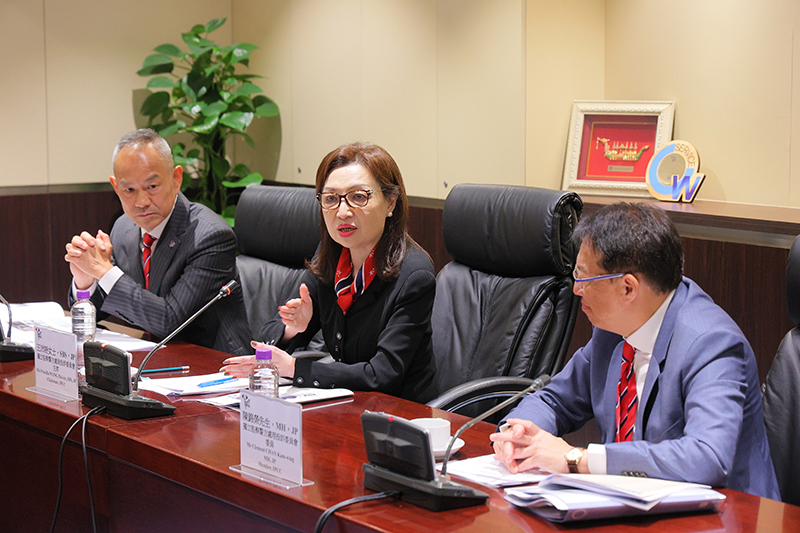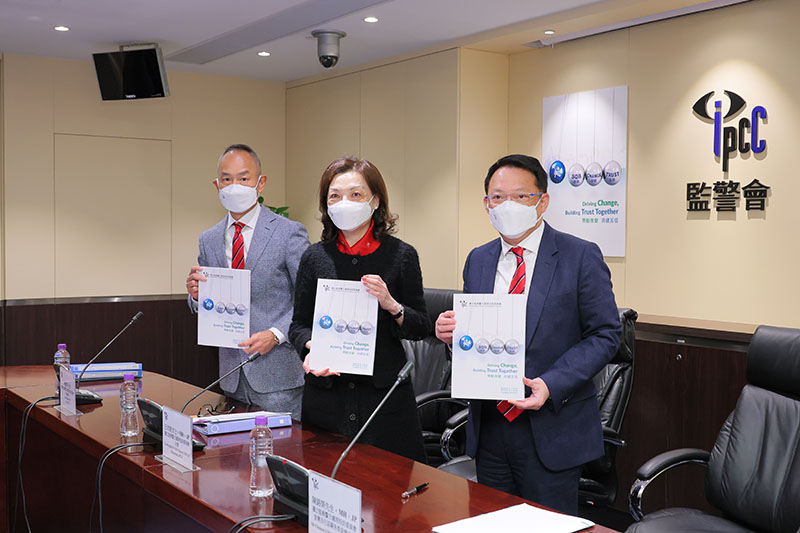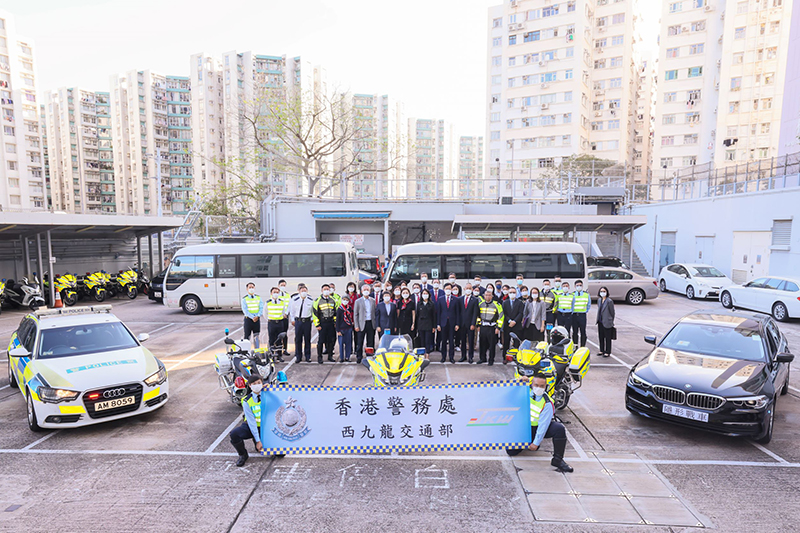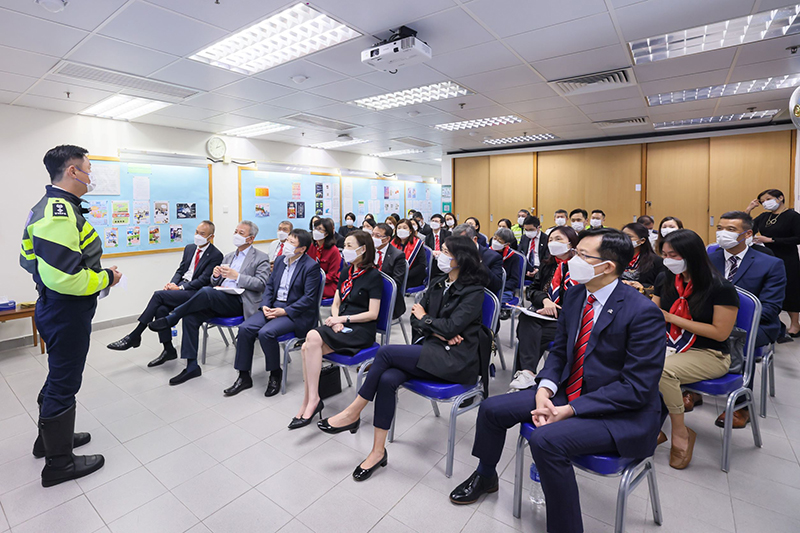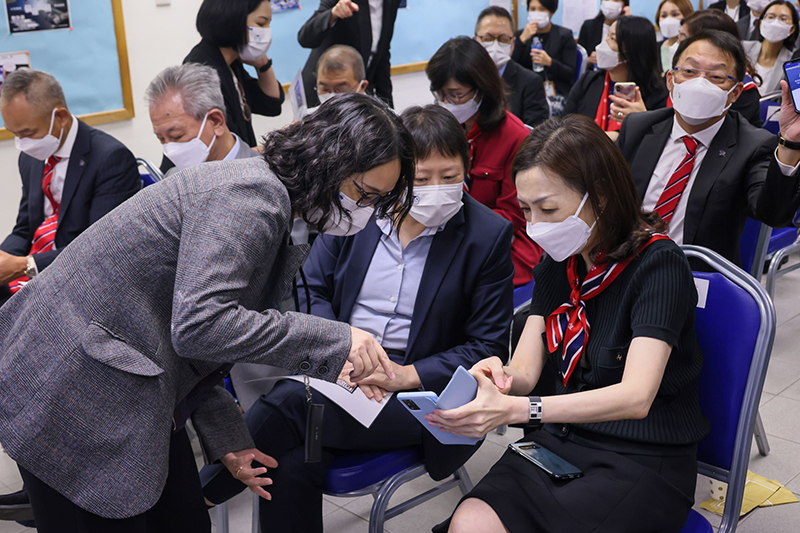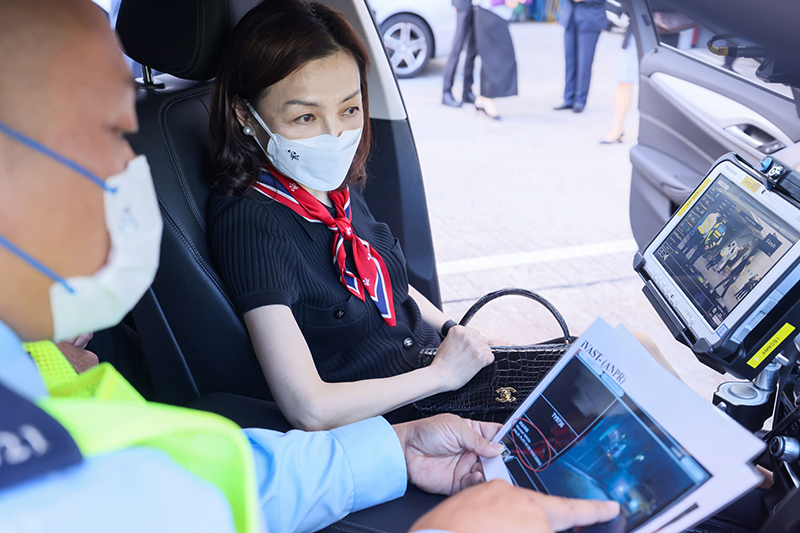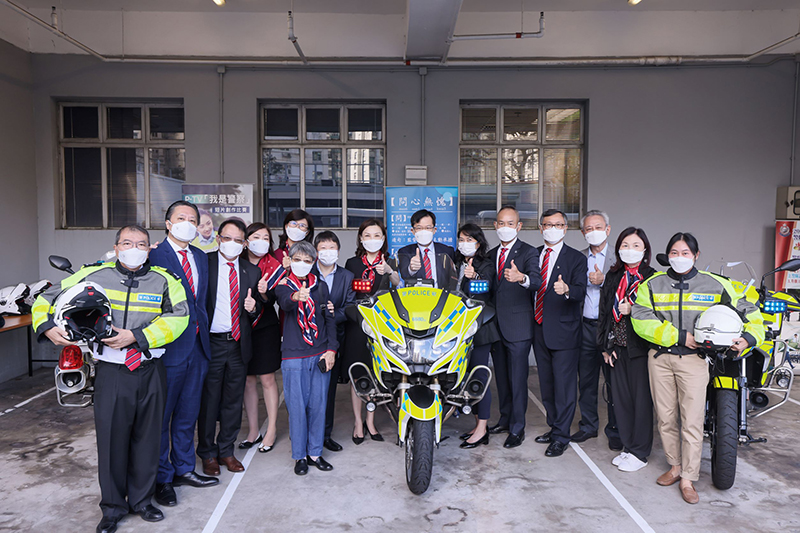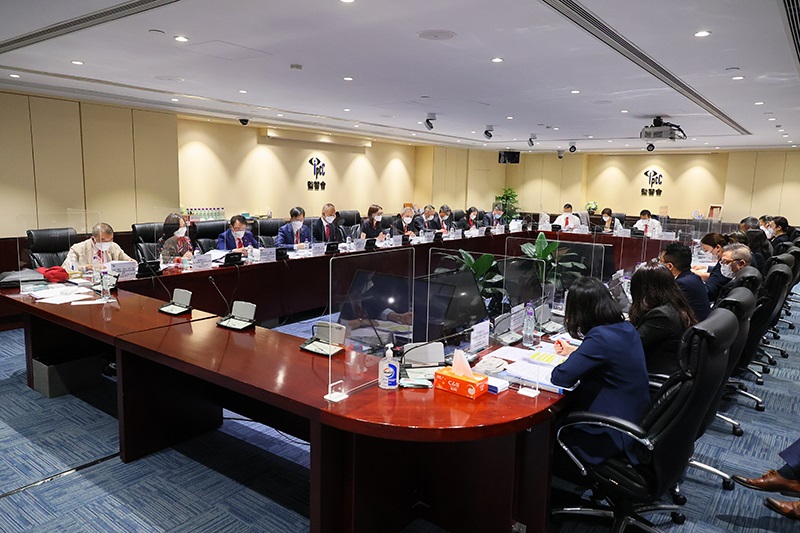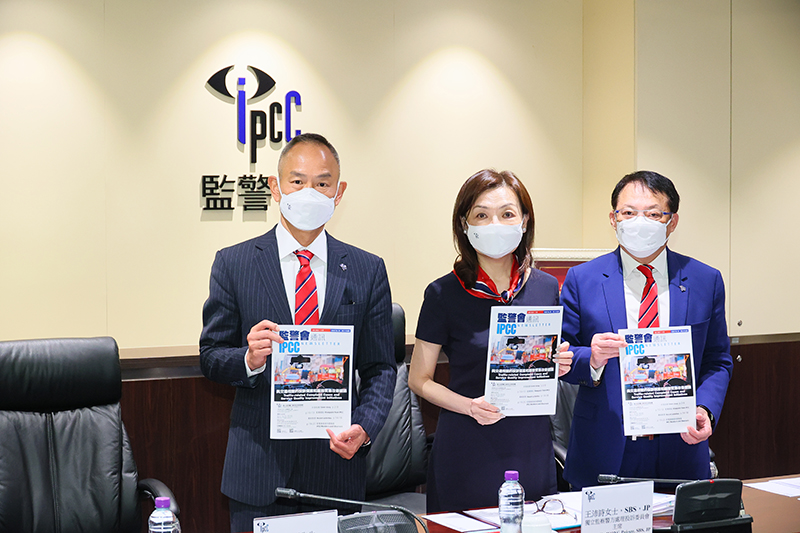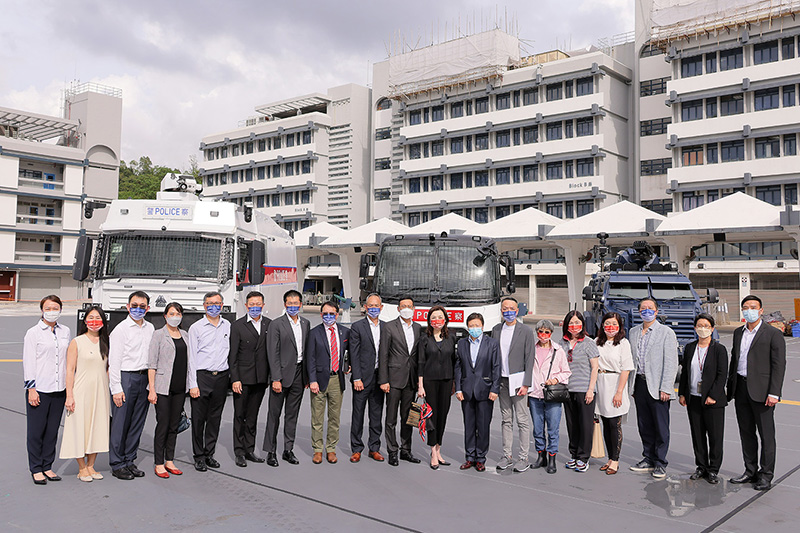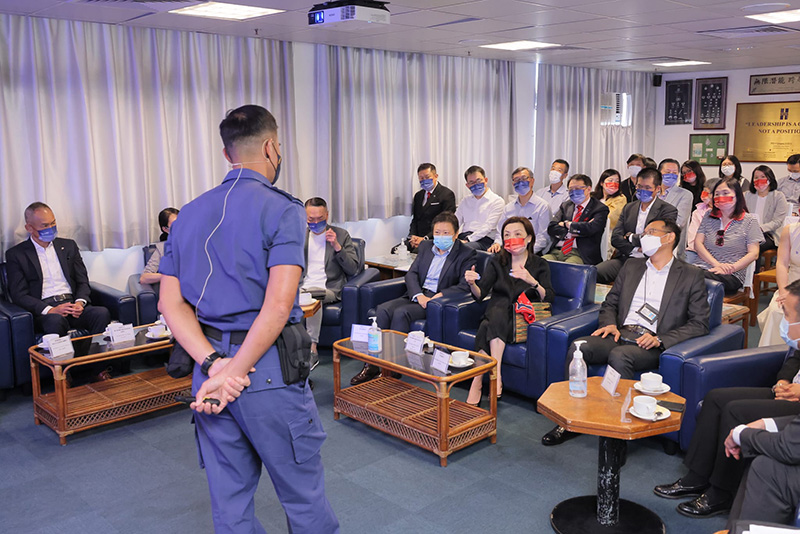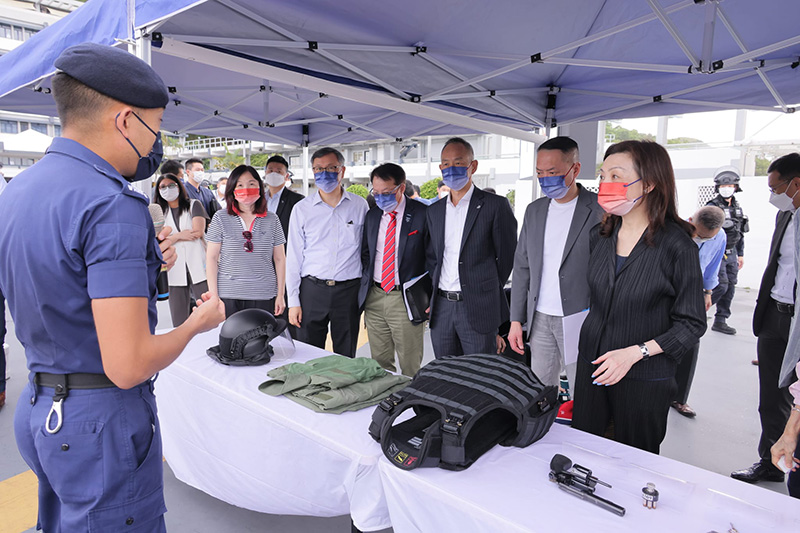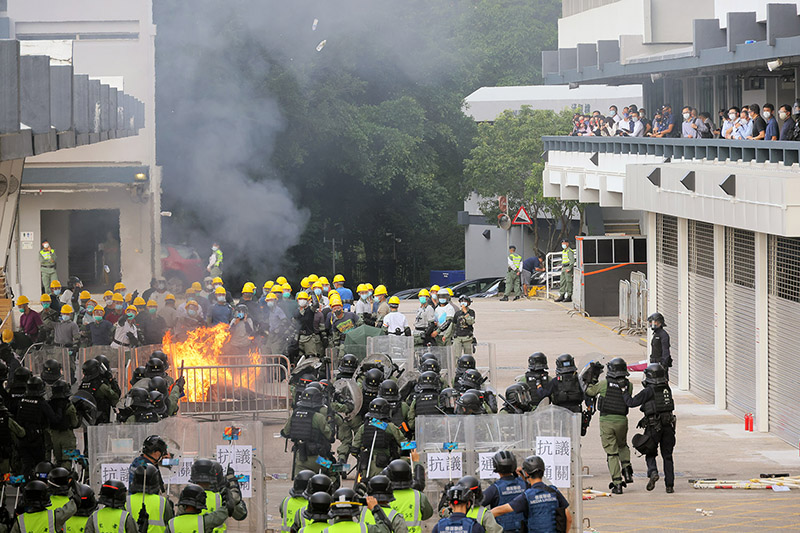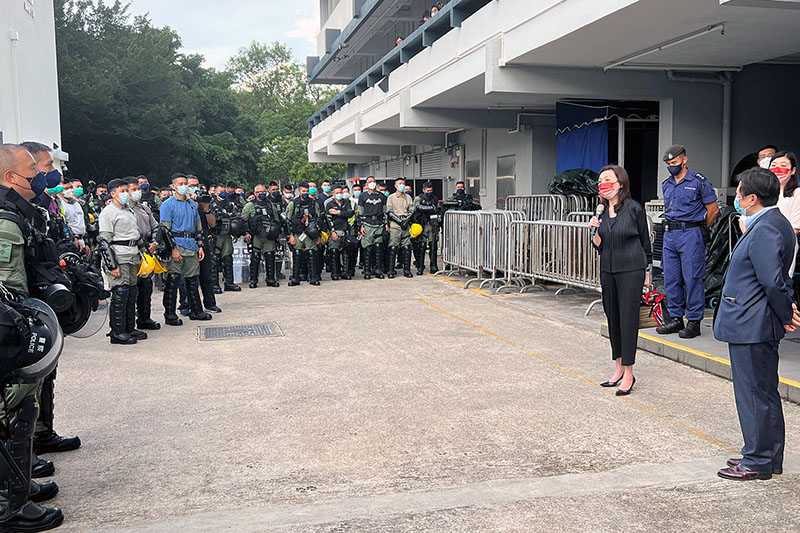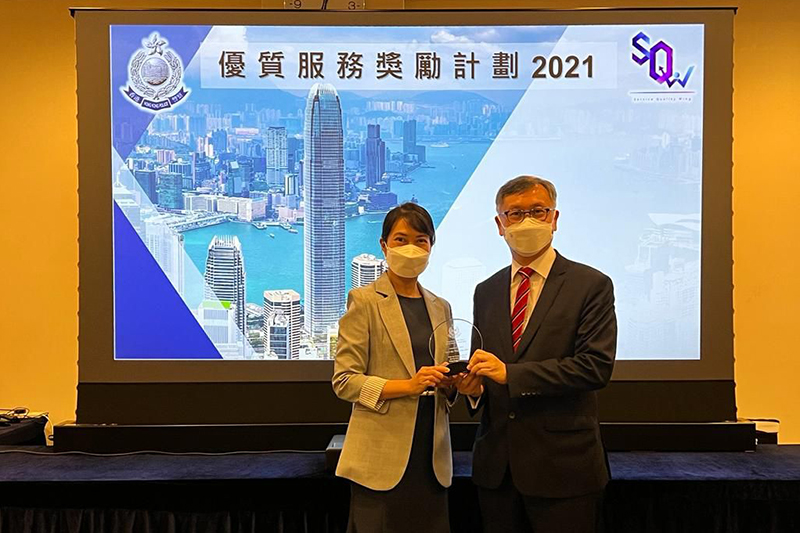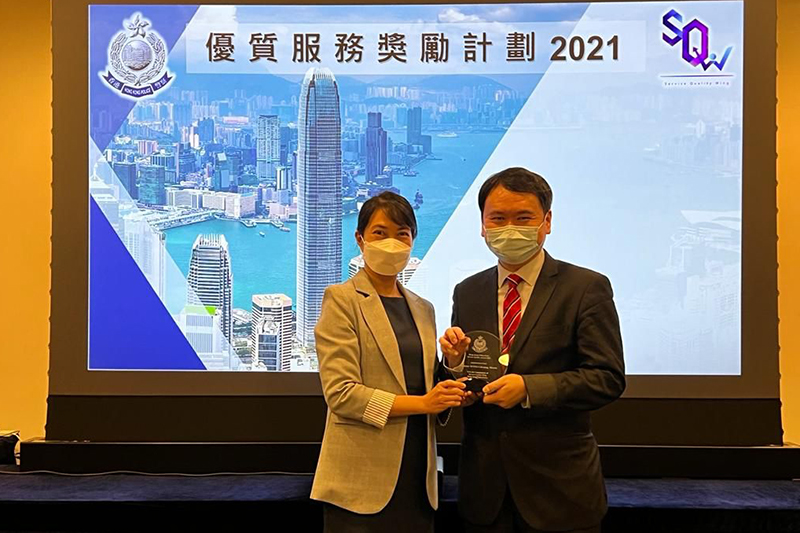21 March 2023 
After the Joint IPCC/CAPO meeting, Ms Priscilla Wong Pui-sze (Council Chairman), accompanied by Mr Clement Chan Kam-wing (Chairman of the Publicity and Community Relations Committee) and Mr Daniel Mui (Secretary-General), hosted a media briefing to launch the 31st issue of IPCC Newsletter. Several complaint cases arising from handling of disputes and routine law enforcement, along with relevant statistics and improvement initiatives IPCC proposed to the police, were presented.
29 December 2022 
After the Joint IPCC/CAPO meeting, Ms Priscilla Wong Pui-sze (Council Chairman), accompanied by Mr Clement Chan Kam-wing (Chairman of Publicity and Community Relations Committee) and Mr Daniel Mui (Secretary-General) hosted a media briefing to publish its 13th Report since becoming a statutory body. Mr Daniel Mui presented the key complaints figures in the reporting period, while Mr Clement Chan elaborated on the SQIIs covered in the 2021/22 Report. These SQIIs demonstrate the Council’s effort to “drive change” with the force by optimising their service quality, and “build trust together” to strengthen public confidence in the two-tier complaints system.
29 November 2022
An IPCC delegation of 11 Council Members and 13 Secretariat staff members, led by IPCC Chairman Ms Priscilla WONG Pui-sze, SBS, JP, visited the Traffic Kowloon West Operational Base. During the visit, the delegation learned how the police have been adopting technologies to support traffic enforcement and help reduce related complaints. Members also met with frontline traffic police officers to understand the challenges they faced while performing their daily duties.
Over the past five years, traffic-related complaints accounted for nearly 20% of the overall complaint cases per annum. Over 90% of the allegations were minor in nature such as Neglect of Duty, Misconduct or Impoliteness. In light of the observations on these complaints, the IPCC put forward a total of 14 Service Quality Improvement Initiatives (SQIIs) on traffic-related law enforcement and traffic accident investigation and encouraged the force to expand the use of technology to improve the level of service to the community.
During this event, representatives from the Traffic Branch Headquarters briefed the IPCC delegation on ways the force’s strategy on making use of technology help improve the accuracy and efficiency of enforcement actions and reduce conflicts with members of the public. For instance, the Mobile Video Team and e-Ticketing have been put in place to effectively curb illegal parking, lower the rate of disputed tickets and reduce related complaints. The “In Vehicle Average Speed Tracker” introduced this year further strengthens the force’s capability in combating traffic offences, while the WeChat mini-programme “Project PROVE” rolled out during the year allows members of the public to report non-emergency traffic-related offences online. IPCC Members also took part in the demonstrations of “Pre-screening Breath Test” used by the force to combat drink driving and “Rapid Oral Fluid Test” (ROFT) which identifies drivers who are under the influence of drugs. The increased efficiency and higher precision of ROFT compared to the previous testing methods further enhance the reliability of the evidence gathered and the effectiveness of enforcement actions.
After the sharing session with frontline police officers regarding their daily enforcement duties, three IPCC Members also put on traffic police uniforms to experience first-hand the challenges officers face on a day-to-day basis working outdoors.
IPCC Chairman, Ms Priscilla WONG stated, “Our densely populated city enjoys the support of a very well-developed network of transport infrastructure. The complexity of the road conditions, however, often poses challenges to the daily traffic enforcement by the police. While taking enforcement actions, frontline police officers often need to communicate with members of the public. If members of the public do not understand police procedures, or if either party loses patience, conflicts may arise and thereby leading to complaints. In view of this, the IPCC put forward a total of 14 traffic-related SQIIs. The Council is pleased to see that the police take an active role to follow up on these SQIIs, and to keep pace with the times by employing different technologies to enhance the effectiveness of law enforcement and to ensure the safety of citizens. Whilst we will continue recommending pragmatic SQIIs to the police, the Council will do our utmost to uphold the fact-and-evidence-based principle in complaint handling so as to ensure the integrity of the two-tier complaints system.”
21 June 2022 
At the Joint Meeting between the IPCC and CAPO, the police gave a presentation on IPCC’s recommendations on use of force. After the meeting, Ms Priscilla Wong Pui-sze (Council Chairman), accompanied by Mr Clement Chan Kam-wing (Chairman of Publicity and Community Relations Committee) and Mr Daniel Mui (Secretary-General) hosted a media briefing to update the follow-up work on implementation progress of 52 recommendations put forward by the IPCC in its Thematic Study Report. Mr Clement Chan briefed the media on IPCC’s publicity work, while Mr Daniel Mui presented the cover story of the 29th issue IPCC Newsletter, and reported the latest complaints statistics arising from public order events.
30 May 2022
An IPCC delegation of 11 Council Members and 15 Secretariat staff members, led by Council Chairman Ms Priscilla Wong Pui-sze, visited the Police Tactical Unit (PTU) Headquarters. The visit was to follow up the police’s implementation progress of recommendations made by the IPCC in its Thematic Study Report. The police briefed the delegation of follow up actions PTU had taken in five major areas, namely: (1) Riot training for frontline officers, (2) Command and coordination in tackling riots, (3) Dissemination of information to public in riots, (4) Effect of tear gas, and (5) Police guidelines on handling riots.
The police showed the delegation an array of less-lethal weapons, the use of which strictly complies with operation manuals written by the overseas manufacturers and conforms to UN Basic Principles on the Use of Force. These less-lethal weapons are currently used by overseas law enforcement agencies. Since the handover in 1997, PTU has progressively switched to weapons and ammunitions that are less lethal in order to minimise bodily harm to rioters, but at the same time allow frontline officers to effectively handle riot situations. The delegation also looked at the bullet-proof “Sabre-toothed tiger” armoured personnel carrier and the small size Specialised Crowd Management Vehicle that the police have newly acquired.
The IPCC delegation then watched a series of scenario-based practical training exercises, and observed how frontline police officers, with an enhanced knowledge of the use of force, applied different levels of appropriate force and anti-riot tactics to tackle riots of variable magnitude. Four IPCC Members took part in the drills in full internal security kits to experience how a riot platoon dealt with severe challenges in a riot. The experience would facilitate Members to have a better understanding of situations that might give rise to complaints against riot officers.
This visit gave Members an insight into how the police would deal with riots, using minimum force when necessary, to restore public order. It helped the Council to impartially examine complaint cases stemming from riots.
11 May 2022
Mr Alex Chu Wing-yiu (Chairman of Operations Advisory Committee) and Member Prof Martin Wong Chi-sang were invited by the Police Force to join the Judging Panel for the Service Quality Award Scheme 2021 and took part in adjudicating projects submitted by different formations. Organised by the Service Quality Wing of the Force, the Scheme aims at encouraging police officers to submit suggestions to further enhance their performance and effectiveness, so as to improve the professionalism and service quality of the Force.
Tweet